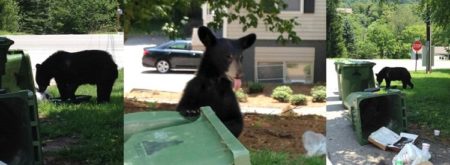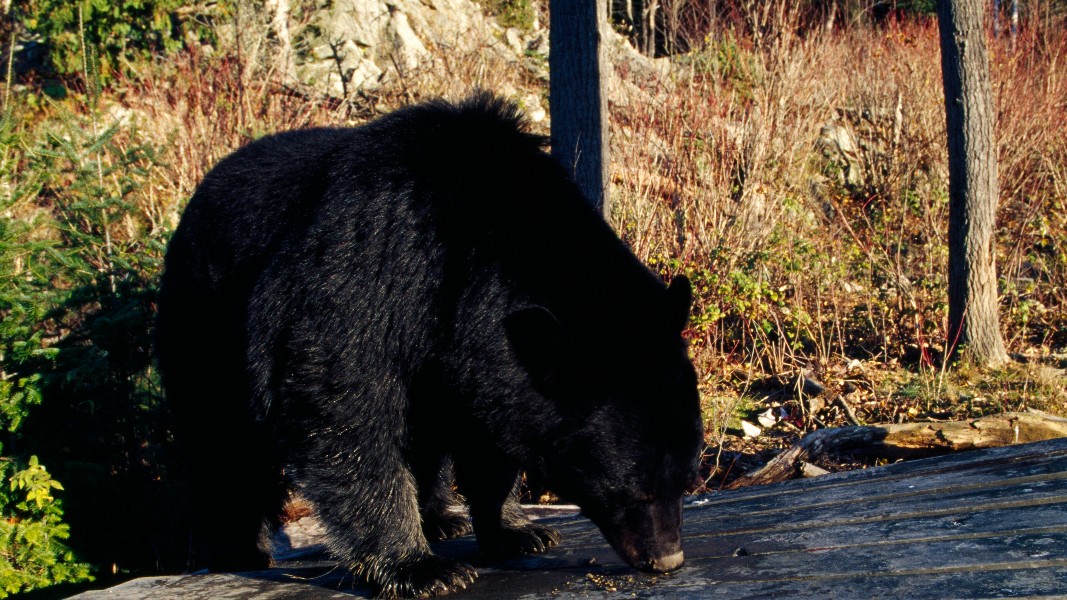
Prevent Problems
Notice: Do Not Feed Bears
Most injuries associated with bear-human encounters result from people feeding bears or from bears feeding on human food sources.
Facts and Tips
Help us Make Asheville a Bear Smart Community
- Fact: Bears in your neighborhood are not a cause for concern. Most bear problems are temporary, usually occurring in the spring and summer.
- Fact: Bears will naturally investigate food odors. They are attracted to garbage, bird seed and suet, pet foods, compost piles and grease on barbecue grills.
- Fact: No one traps and relocates problem bears. Best practices for bear management aim to encourage humans to modify habits to prevent problems and remove sources of attraction before problems occur.
- Tip: Secure bags of trash inside cans and store these cans in a garage, basement, or other secure area.
- Tip: Avoid putting trash cans out the night before pick-up days. On trash pick-up days, place trash outside, as late as possible. Keep all garbage sites clean.
- Tip: If a bear is in the area, remove bird feeders and hummingbird feeders. Even if a bird feeder is advertised as “bear proof”, it is not safe to use near bears.
- Tip: Do not leave pet foods out overnight. If you must feed pets outdoors, make sure all food is consumed and empty bowls are removed.
- Tip: Clean all food and grease from barbecue grills after each use. Bears are attracted to food odors and may investigate.
Current Bear Problem
If you already have a problem with a bear:
- Scent Repellents. Do not pour ammonia, bleach, or other chemicals into your cart. These chemicals can blind and injure bears, and also pose a danger to waste collection staff. Keep your cart clean by using pine-based cleaners, but avoid using anything with a fresh, lemony or fruity smell.
- Frighten the bear. Shouting, clapping, blasting a car horn or motion-sensitive lights may scare off a bear temporarily.
- Do not approach the bear. Crowds of people can unnerve a bear, causing it to act unpredictably.
- Install electric fencing. It may deter bears from approaching beehives, dumpsters, gardens, compost piles, or other potential food sources.
- Compost food scraps. Sign up to use our free composting drop-off sites. Eliminating food scraps from trash greatly reduces chances of bears getting into trash.
- Consider reserving a bear resistant trash cart.
- Have your own bear cart? You must register it here in order to receive City Sanitation Services.
Additional Information & Resources
- North Carolina Wildlife Resources Commission (WRC)
- The WNC Nature Center local wildlife species experts at 828-298-5600
- BearWise
- Colorado Parks and Wildlife: additional tips and information brochure
Updated 6/5/2024
